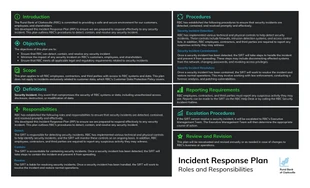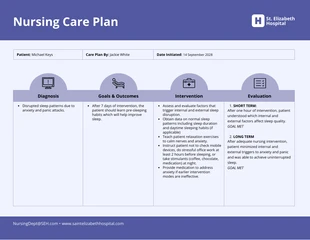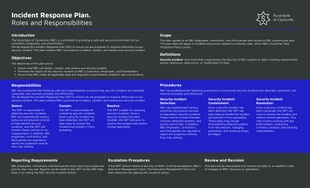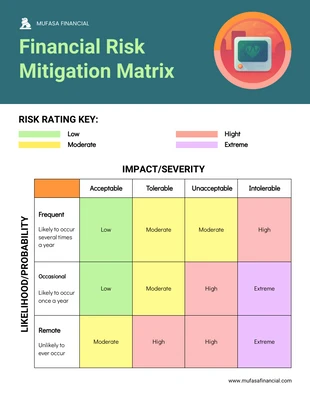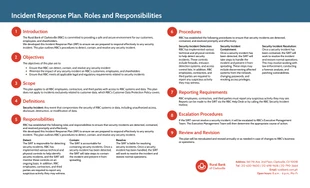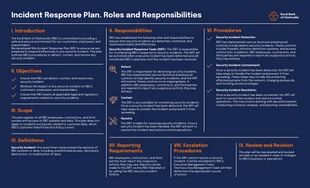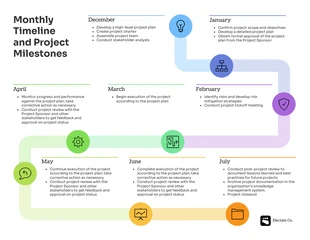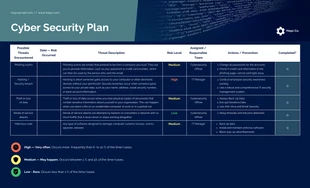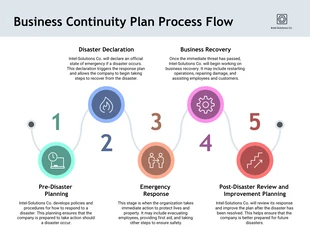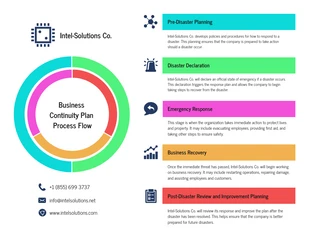
Security Incident Response Plan Template
Deal with a security breach or attack quickly and efficiently by personalizing this security incident response plan template.
100% customizable templates
Millions of photos, icons, charts and graphics
AI-powered editing features
Effortlessly share, download, embed and publish
Easily generate QR codes for your designs
- Design stylemodern
- Colorsdark
- SizeLegal (14 x 8.5 in)
- File typePNG, PDF, PowerPoint
- Planfree
Data is one of the most invaluable assets in any industry. It enables companies to make better decisions, understand their customers, and optimize their operations. You can use data to improve customer service, target marketing campaigns, and track performance. Hard drives, CDs, and tapes are examples of physical data storage. In contrast, servers, clouds, and databases are examples of electronic data storage. When selecting a data storage method, it is critical to consider security, cost, efficiency, and scalability. When it comes to data storage, security is of the utmost importance. Data breaches can be disastrous for businesses, resulting in financial loss, reputational harm, and legal liability. Companies take care of these risks by implementing strong security measures such as installing firewalls and antivirus software, limiting access to sensitive data to authorized users, and encrypting data. Creating a security incident response plan is another critical step in data security. A security incident response plan is a set of procedures to be followed in case of a security breach or other emergency. A security incident response plan contains the damage, reduces business operations disruption, and quickly

